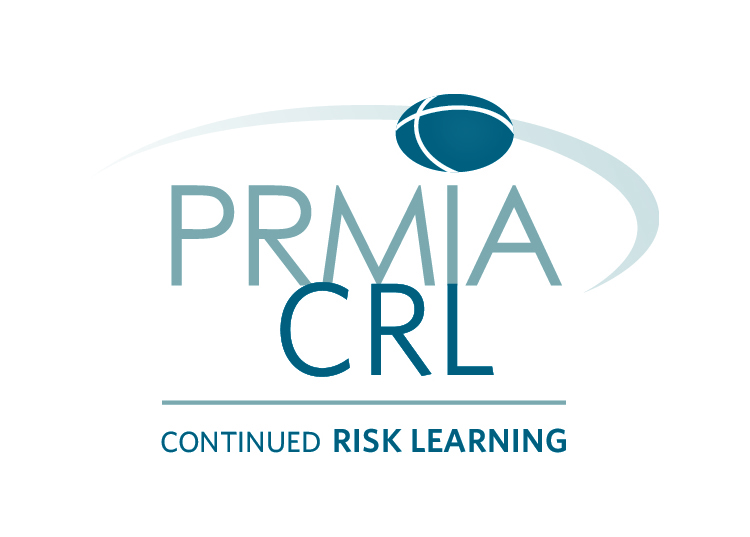Spreadsheet Control for Risk Management

Spreadsheets are a top 10 operational risk for most organizations. 70% of companies admit to having had a serious error. This course will equip participants with the skills to assess spreadsheet risk in their organization; implement an effective spreadsheet risk process; and build reliable business critical spreadsheets.
 Dates
Dates
Course Launch: Open Registration
Course Access: 60 days
 Time:
Time:
Self-paced, Self-study
 Presented by:
Presented by:
Adrian Maconick
 Session Length:
Session Length:
4 Lessons, 45-minute avg. duration
| About This Course |
|
|
Spreadsheets are critical to the modern business world and are used in all industries and business functions. They are used in a range of activities including financial modelling, position keeping, accounting and pricing. Yet spreadsheets are responsible for a catalogue of errors. A regular stream of newspaper stories documents some of the larger multi-million-dollar errors. These are the tip of the iceberg.
70% of companies admit to having had a serious error. For organizations that operate a model risk process, around 60% of models can be on spreadsheets. This means that spreadsheet error is a top 10 operational risk for most financial institutions. Many organizations still do not have an effective spreadsheet management process, either not addressing the issue at all or running an unnecessarily bureaucratic process. This course will provide attendees with a detailed understanding of how to implement an effective spreadsheet management process.
Course Objectives
- Describe the regulatory and business background to spreadsheet and end user computing risk
- Explain how to develop reliable spreadsheets
- Illustrate how to develop an effective strategy
- Assess end user computing risk in your organization
- Practice how to validate and test a spreadsheet portfolio
- Outline an effective spreadsheet risk process
How It Works
Each Tuesday a lesson launches with pre-recorded video, knowledge checks and an optional exercise. Work through the lessons at your own pace.
|
|
| Agenda |
| |
|
Topic |
|
Lesson 1 |
Regulatory & Business Background
- Examples of major spreadsheet errors and their background
- Legal and regulatory requirements
- Relationship to Model Risk
- The role of IT
- Exercise
|
|
Lesson 2 |
How to Develop Reliable Spreadsheets
- Best practice standards
- Five principles of clean spreadsheet design
- Hands-on session applied to best practice spreadsheet development
- Worked example
|
|
Lesson 3.1, 3.2
|
Spreadsheet Strategy and Validation
- Strategy options
- Assess spreadsheet usage, current policy, and process
- Building an inventory
- Principles of validation
- Building quality
- Validation process
- Worked example
|
| |
Lesson 4 |
Implementing an Effective Spreadsheet Risk Process
- The main components of a spreadsheet risk control process.
- Developing an effective policy
- Change management – getting people to adopt the policy
- Core controls
- Spreadsheet process improvements
|
| Who Should Attend |
|
- Finance and risk professionals
- IT professions responsible for information security
- Financial institutions that use spreadsheets including banks, insurance companies, and other financial organizations
- Companies with a heavy reliance on spreadsheets
|
| About Our Experts |
|
|
|
.JPG) |
|
Adrian Maconick has over twenty years' experience in financial services and “big four” consulting. He specializes in finance, risk management, and model risk. Relevant experience includes:
- Operational roles in financial services, for example, as Head of Operations at the EBRD during a time of rapid transaction growth
- Validation of complex financial models, for example, the model validation for the first AAA derivatives vehicle in London
- Development of FBA a large scale risk and finance framework for financial institutions implemented at dozens of financial institutions
- Numerous spreadsheet automation projects in financial services
Adrian is a Chartered Accountant and has a degree in Natural Sciences from Cambridge.
|
| Continued Risk Learning Credits: 4 |
 PRMIA Continued Risk Learning (CRL) programs provide you with the opportunity to formally recognize your professional development, documenting your evolution as a risk professional. Employers can see that you are not static, making you a highly valued, dynamic, and desirable employee. The CRL program is open to all Contributing, Sustaining, and Risk Leader members, providing a convenient and easily accessible way to submit, manage, track and document your activities online through the PRMIA CRL Center. To request CRL credits, please email [email protected].
PRMIA Continued Risk Learning (CRL) programs provide you with the opportunity to formally recognize your professional development, documenting your evolution as a risk professional. Employers can see that you are not static, making you a highly valued, dynamic, and desirable employee. The CRL program is open to all Contributing, Sustaining, and Risk Leader members, providing a convenient and easily accessible way to submit, manage, track and document your activities online through the PRMIA CRL Center. To request CRL credits, please email [email protected].
| Registration |
| Membership Type |
Price |
| |
|
| Members |
$299 |
| Non Member |
$349 |
If this is your first time accessing the PRMIA website you will need to create a short user profile to register. Save on registration by becoming a member.
Register Now